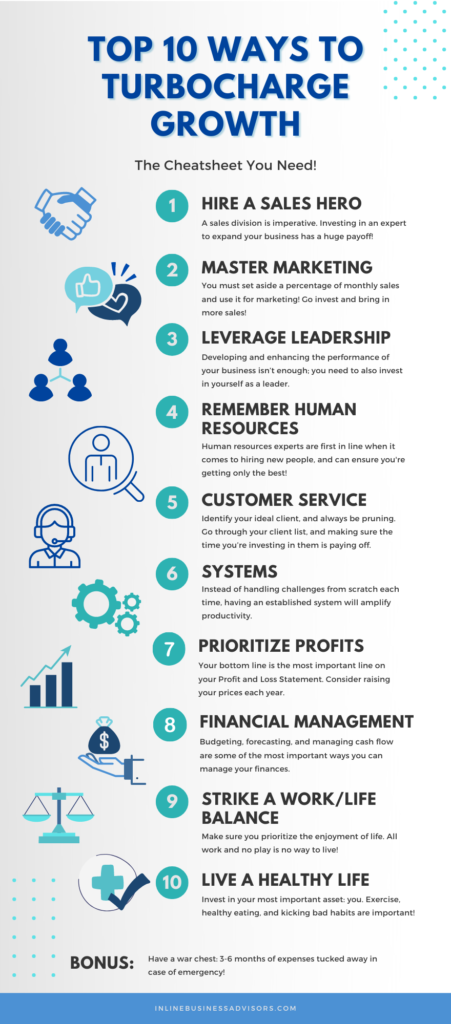Sales growth is imperative to any business in any industry because it is the main source of revenue generation. Sales help build loyalty and trust among the brand and customers. This is probably why big brands and corporate giants have separate budgets to invest in sales. But what about small businesses? Small businesses often experience the dilemma of whether or not to hire a salesperson. As small businesses or start-ups are run by inexperienced entrepreneurs, they often make the mistake of hiring a salesperson too early or too late. Having a salesperson for a small business is crucial to its growth, but determining the correct hiring time is the real game-changer.
If you own a small business and are often bothered by the question, “Are sales reps worth it?” Then this article is for you. Hiring a salesperson for a small business can be tricky as timing plays the main factor. This article will discuss several criteria that can be your go-to guide in hiring a salesperson for small businesses or at least help in making well-informed decisions. So let’s begin.
Are sales reps worth it?
Some entrepreneurs might think that having a dedicated person for sales isn’t necessary as the company already has a great product in high demand. This can be a big mistake that you will realize going forward. Apart from selling products and services, sales reps also represent your brand. They go the extra mile in establishing brand credibility and awareness in the market.
A sales rep interacts directly with potential and existing customers through various communication channels like social media, emails, phone calls, etc. This way, they can collect valuable feedback from the end users. As a result, this helps enhance the quality of products and services. Sales reps not only negotiate with leads but convince them about the brand or the product they are selling. Through field activities and from the office, sales reps work to streamline a company’s entire CRM system.
A salesperson or a sales team is one of the valuable revenue-driving channels for a company, especially start-ups. Hiring a salesperson at the right phase of growth can multiply revenue and also boost overall productivity, brand credibility, and customer relationships.

How to develop a model before hiring a salesperson for a small business?
Now, you already know the importance of hiring a salesperson in a small business. Next, you have to understand how to optimally utilize their skills for growth. Expecting a salesperson to take the entire responsibility of lead generation from the first day will be illogical. Even an experienced and skilled salesperson will need a sales model to understand the product and pitch it to the customer. As an entrepreneur, you have to design a sales model that will be the tool for sales reps.
Having a fool-proof sales model will not only scale up lead generation, but will also make the hiring worth it. Once you see profit multiplying, paying the sales rep well will not be an issue even with limited funds. To achieve this, you have to study your product and your customer.
Figure out what the unique service or selling point of your product is. And then think about how it will benefit the customer. Once your concept is clear, try to make some sales. The moment you try this, you will face rejections from customers, which is normal. Even after an amazing sales pitch, the person might hear, “I agree this is a great product, but…”. If you can counter the “but”, you will have a tried and tested sales model for your business.
There can be multiple reasons behind rejections from customers like pricing, quality, delivery, etc. Keep a positive approach to these rejections, and try to work on them. This will only improve your product and lessen the number of competitors in the market. According to experts, an entrepreneur must close at least 10 to 20 sales before hiring a salesperson. Some studies even suggest that founders of a business should continue selling their products or services for at least 2 months before recruiting a salesperson for a small business. This way, they can save on CTC. They will also have a working model to generate revenue immediately with no trial or error.
When not to hire a salesperson for a small business?
Before learning when to hire a salesperson for a small business, you should know when not to hire one. Knowing this will help you avoid costly mistakes. Most entrepreneurs look at sales reps as a shortcut to generating revenue funnels. This is a common and potentially costly mistake. If you own a start-up or if you have just launched a product with no idea how it will perform in the market, the wise decision will be not to immediately hire a salesperson. First, test the sales yourself, assess the market, remove the flaws in your products, and then hire a sales rep to follow in your footsteps.
This way, you can ensure your sales rep will pitch your version of the product or service in a time-tested way. Hiring a salesperson in a small business will never scale the growth, instead incurring heavy losses. Start-ups often run on limited funds so they cannot afford to pay someone for an undecided trial and error period before they truly start selling. Businesses scale with the right planning, and hiring a salesperson or developing a sales team tops the list here.
As an entrepreneur, only when you feel confident enough to train and guide a salesperson to create revenue funnels should you hire a sales rep. If you hire too early, you may end up firing staff who would have been invaluable for your company.
When should a small business hire a sales rep?
This can be confusing for entrepreneurs of growing businesses. Some start-ups scale quite easily while others need a lot of fueling. In such cases, entrepreneurs of already scaling businesses might not feel any urgency of hiring a salesperson. Delaying hiring a sales rep for too long can also result in missing out on new opportunities. You might also burden yourself with too many responsibilities. So when should a small business hire a sales rep? The answer is when the business needs it to grow with complete potential.
Even if you are closing a fair number of sales by yourself, you should never think of cutting down the cost by not hiring a sales rep. As the owner of a small business, you need to focus on several areas of the business and sales, which requires you to devote substantial time. This is where other areas of business like management, production, and even CRM might suffer.
Another factor can be lead evaluation and sales opportunities. Evaluate the demand for your product in the market, and check if you can meet or boost customer engagement. If you cannot, a sales rep can be a helping hand. As your business scales, the revenue the sales rep generates will also scale, so affordability will not be an issue.

Is hiring two salespeople better than hiring one?
Market experts often suggest hiring two sales representatives instead of one. This will help entrepreneurs conduct a comparative study to figure out what works and what does not. If one of them excels and the other fails, you will know that there is nothing wrong with your product, the market, or your sales model.
Hiring a salesperson in a small business puts you at a risk. Even if you have a proven sales model, the person might fail to blow it up, making you doubt your assessment. You might think of re-doing everything from scratch, which is not at all required. Hiring two sales reps provides the advantage to know if anything is truly wrong and how to immediately fix it.
How to know if my business is ready to hire a salesperson or a team?
There is no clear answer to when a small business should hire a sales rep. However, there are a few signs that your business is ready for a salesperson. Some consider affordability, and some assess the demand or the urgency to increase revenue. These might be determining factors for hiring a salesperson in small businesses but not the primary ones. This article will reveal all the signs that can be hiring calls for a sales rep in a small business.
Signs that your business is ready for a salesperson
Slow response time to leads: The right customer engagement will bring a faster response, leading to higher conversion rates. if your leads are responding late or not at all, then they are not getting enough attention.
You are overburdened: You are finding it difficult to make sales and run the business at the same time. Hiring a salesperson means you will have more time to devote to other aspects of your business.
Too many leads to handle: Leads can never go unattended. If your customer base is growing and you find it difficult to engage with all of them, this can be a sign to hire a sales rep.
Missing out deals: Business deals are coming and also walking out the door because you do not have time to attend to them. Hire a sales rep so you avoid missing new opportunities.
Failing to keep up with the market trend: Market trends change and with that, customer behavior also changes. You might need to tap a new market or target a different customer base, but you are too occupied with other things. A salesperson can assist you in generating new revenue streams.
Quality is becoming a concern: End-user feedback is crucial to judge the quality of your product. If your customer complaints are not immediately addressed, hire someone to guide the production team and enhance the quality of the product.
CRM system is suffering: It is necessary to figure out the pain point of the customers and engage with them to maintain an ever-growing customer base. If you cannot dedicate your time, get a salesperson on board.
Existing team feels overworked: If you find your existing sales team is failing to cater to the rising number of leads or feel exhausted, it’s time to expand the team. Hire new salespeople to join the force and contribute to the company’s growth.
Business is growing exponentially: Growing businesses will have growing needs, and sales are no exception. With the rise in lead generation, the CRM system has to improve, which is where the sales team plays a crucial role.

Finding the right salesperson for a small business
Recruiting the right talent who perfectly aligns with the company’s values and fully understands the product can be challenging. Hiring experienced sales reps is a feasible option, but the cost can be higher. Training a new employee is a good option, but you must wait for a while to assess their performance. There are a few ways to find the right salesperson with the right experience and approach. Check the options below to pick the one that suits your requirement.
Part-time hiring: small businesses can hire a part-time salesperson to generate revenue funnels without burdening the budget. Affiliate programs or incentive-based hiring programs are great options here.
Staffing agencies: These agencies remove the headache of finding the right talent through an intensive screening process, but the services are expensive. If you can afford them, then look for staffing agencies that specialize in the sales niche.
Job boards: Online platforms will get you a huge number of candidates to choose from, but the short-listing process can be tedious. If you want more options and experience is not a determining factor, try this.
Referrals: This is a safe option to find a candidate. The negative is that if the candidate does not work out, it can affect your relationship with the referee.
Final thoughts
Hiring a salesperson for a small business is always a good idea if you know the exact time to expand the team. The process should always start by making sales and developing a foolproof model before hiring a salesperson. To expand the sales team, you can consider several factors to ensure your business does not jump into losses while chasing revenue growth.
If any part of this equation is not falling into place, review your plan and your product to understand where it is failing. Even the most experienced sales professionals will not understand your business the way you do. They can only blow up your idea and sales target to bring incredible growth. If you find anyone who can do this, ensure the salesperson has the right tool to utilize their skills to benefit your business.

Larry Vivola is a successful business coach who coaches entrepreneurs anywhere in the world via Zoom. If he’s not coaching he’s making meatballs and entertaining friends and family!
Free Advice Sucks! Invest in a one-time strategy session and pick Larry’s brain to help solve a pressing problem, discuss an idea, or brainstorm how to give your business performance a Turbo Boost!!! In the end your investment will yield you more money, time, and happiness!

